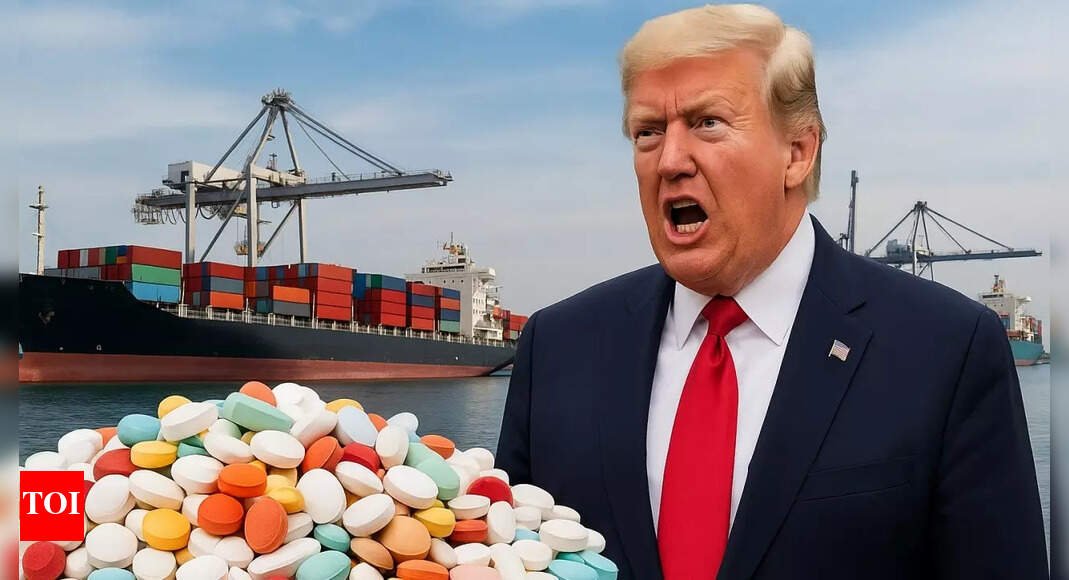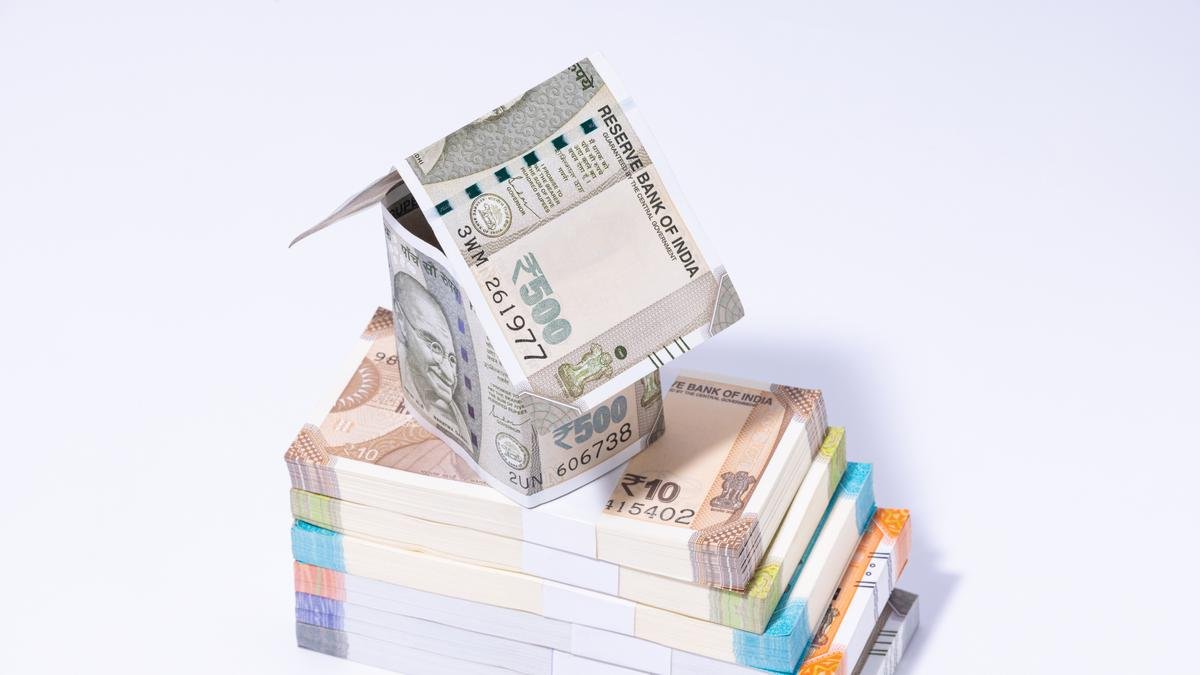Trump’s 100% pharma tariffs: How bad will India’s pharmaceutical exports be hit? ‘Low-cost generic model may offer cushion’

US President Donald Trump’s latest announcement of 100% tariffs imported branded or patented pharmaceutical products has sent shockwaves through pharma companies around the world.Trump announced on Truth Social that effective October 1, 2025, a 100% tariff will be applicable on imported branded or patented pharmaceutical products entering the United States, with exemptions for manufacturers actively constructing drug-manufacturing facilities within US borders.“Starting October 1st, 2025, we will be imposing a 100% Tariff on any branded or patented Pharmaceutical Product, unless a Company IS BUILDING their Pharmaceutical Manufacturing Plant in America. “IS BUILDING” will be defined as, “breaking ground” and/or “under construction.” There will, therefore, be no Tariff on these Pharmaceutical Products if construction has started. Thank you for your attention to this matter!” he posted on Truth Social.So how do the latest round of tariffs from Trump impact India and the world. According to Ajay Srivastava, founder of Global Trade and Research Initiative (GTRI), while exports of Indian generics may remain largely unaffected, European nations, specifically Ireland, Switzerland, and Germany, may see significant effects from the tariffs.
How will Trump’s 100% pharma tariffs impact India?
India exports a significant amount of pharmaceutical drugs to the US. However, the trade is majorly focused on generic medications rather than branded products.
- DGCI&S statistics reveal India’s pharmaceutical formulation exports to the US reached $9.8 billion in FY2025, representing 39.8% of its total pharmaceutical exports.
- India’s pharmaceutical exports to the United States primarily consist of finished formulations and medicaments, highlighting its position as a prominent centre for cost-effective generic drugs.
- The export catalogue includes tablets, capsules and injectable medications for treating conditions like hypertension, diabetes, infections, cardiovascular ailments and neurological conditions.
- Antibiotics form a substantial portion, including amoxicillin, azithromycin, and ciprofloxacin, alongside vitamin supplements such as “vitamin D3, B-complex, and multivitamin” products.
- The export range extends to hormone treatments, medicines for ulcers and diabetes, pain relief medications, corticosteroids, alkaloid-based products, contraceptives and specialised medications for cancer, viral infections and respiratory conditions.
“This focus on off-patent and generic formulations may shield much of India’s trade from the full impact of the new US tariff regime,” says GTRI.However, GTRI flags the definition of ‘branded’ drugs. India supplies both branded and unbranded generic medicines to the United States. Branded generics represent a common category – generic compounds marketed under specific brand names. For example, “paracetamol” can be exported either as a raw material or as tablets under brands like “Crocin”.If US authorities classify these branded generics as “branded imports”, these products might face the 100% tariff, despite being off-patent. This classification remains unclear, pending official American legal documentation for definitive clarification.“This is a point of confusion. We must wait for US legal documents to say this with certainty,” says GTRI.“For now, India’s low-cost generic model may offer a cushion against the shock of Trump’s tariff. Policymakers and exporters will be watching closely for clarifications from Washington in the coming days to assess the share if all of India’s $9.8 billion pharmaceutical trade with the US will stay unaffected or face disruption in branded product lines,” it adds.The Ministry of External Affairs (MEA) has said that it is thoroughly evaluating the consequences of Trump’s decision to levy tariffs on pharma products.During a weekly media interaction, MEA Spokesperson Randhir Jaiswal confirmed that various government departments and ministries are assessing the situation and studying its possible implications.“We saw a notice yesterday on social media that talked about new tariffs. We’ve seen the report on pharma and other products, and the relevant ministry and department are closely monitoring the matter and examining its impact,” Jaiswal said.
Which companies in India are the top exporters of medicines to US?
A select group of major Indian pharmaceutical manufacturers dominates exports to the US market, contributing approximately 70% of all shipments. According to GTRI, the prominent companies include Zydus Lifesciences Limited, Dr. Reddy’s Laboratories Limited, Lupin Limited, Aurobindo Pharma Limited, Hetero Labs Limited, Sun Pharmaceutical Industries Limited, Eugia Pharma Specialities Limited, Cipla Limited, Glenmark Pharmaceuticals Limited, APL Healthcare Limited, Gland Pharma Limited, MSN Laboratories Private Limited, Amneal Pharmaceuticals Private Limited, Mylan Laboratories Limited, Granules India Limited, Alkem Laboratories Limited, Annora Pharma Private Limited, Alembic Pharmaceuticals Limited, Dr. Reddy’s Laboratories Limited Formulation Unit 7, and Unichem Laboratories Limited.
Trump’s 100% pharma tariffs: What will be the global impact?
US import statistics from 2024 indicate total pharmaceutical imports valued at $212.82 billion, with India contributing $12.73 billion, equivalent to 5.98%. In comparison, Ireland led with $50.35 billion (23.66%), followed by Switzerland at $19.03 billion (8.94%), and Germany at $17.24 billion (8.10%).These European nations, specialising in high-value branded and patented medications, are likely to experience the strongest initial effects of the new tariff policy, according to a GTRI analysis.European exports consist mainly of premium-priced branded and patented medications from prominent companies like Roche, Novartis, Sanofi, Bayer, and GSK. In response, numerous companies are increasing their American investments.The Wall Street Journal reports that over twelve pharmaceutical companies, including Eli Lilly, AstraZeneca, Roche Holding, and GSK, have committed more than $350 billion towards American manufacturing, R&D, and supply chain development by 2030.However, the European Union on Friday said that an agreement reached in July with the US provided protection against tariffs exceeding 15% on pharmaceutical exports.According to an AFP report, EU trade representative Olof Gill said: “This clear all-inclusive 15 percent tariff ceiling for EU exports represents an insurance policy that no higher tariffs will emerge for European economic operators.”A European pharmaceutical sector organisation cautioned that imposing duties on medicines would “create the worst of all worlds.”“Tariffs increase costs, disrupt supply chains and prevent patients from getting life-saving treatments,” declared Nathalie Moll, director general of the European Federation of Pharmaceutical Industries and Associations.The recent US policy decision faced opposition from its ally Australia, which sent pharmaceutical goods valued at approximately $1.35 billion to the United States in 2024, as documented by the UN’s Comtrade Database.Australian Health Minister Mark Butler said that the increased rates were “not in the American consumers’ interest… particularly given the degree to which their exporters to Australia benefit from that free trade as well.”




